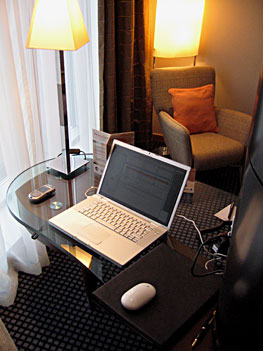From Scott Adams’s The Dilbert Blog…
Years ago when I worked at a big bank, one of the hot issues was that many customers didn’t trust our new-fangled ATM machines. Amazingly, this fear had almost nothing to do with the fact that I worked in the ATM department. Indeed, my suggestion to include a paper shredder hole right next to the deposit hole was barely even considered. In the end, ATMs rarely stole anyone’s money and kept it for long. Now most people trust ATMs.
I think about the history of ATMs when I hear all the nervous Nellies wetting their pants over electronic voting machines. I believe those worries are totally misplaced. Now don’t get me wrong – there’s a 100% chance that the voting machines will get hacked and all future elections will be rigged. But that doesn’t mean we’ll get a worse government. It probably means that the choice of the next American president will be taken out of the hands of deep-pocket, autofellating, corporate shitbags and put it into the hands of some teenager in Finland. How is that not an improvement?
Statistically speaking, any hacker who is skilled enough to rig the elections will also be smart enough to select politicians that believe in . . . oh, let’s say for example, science. Compare that to the current method where big money interests buy political ads that confuse snake-dancing simpletons until they vote for the guy who scares them the least. Then during the period between the election and the impending Rapture, that traditionally elected President will get busy protecting the lives of stem cells while finding creative ways to blow the living crap out of anything that has the audacity to grow up and turn brownish…
Thanks to Boyd Harris for the link.



